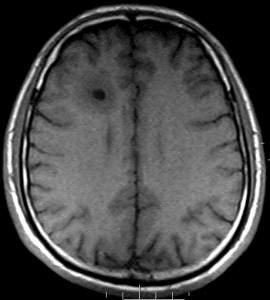
Biogen’s natalizumab fails Phase III endpoints
pharmafile | October 21, 2015 | News story | | Biogen, multiple sclerosis
Biogen’s natalizumab has failed to achieve clinical endpoints in a late-stage study to prove the drug’s potential in patients with a form of multiple sclerosis for which no disease-modifying treatments exist.
ASCEND evaluated the efficacy and safety of natalizumab to slow the rate of disability progression unrelated to relapse in people with secondary progressive multiple sclerosis (SPMS), an unmet medical need.
The majority of people in the study had EDSS scores of 6.0 to 6.5 (meaning a walking aid was required), and were non-relapsing for two years prior to enrolment in the study. The study’s composite primary endpoint evaluated the percentage of patients whose disability had progressed on one or more of three disability measurements comprising the composite endpoint.
Natalizumab demonstrated a statistically-significant effect on upper limb function (one of the three components of the primary composite endpoint) unrelated to relapses. An analysis of other endpoints suggested that some patients received a benefit from treatment, including reduction of relapses and new MRI lesions.
Biogen also says that natalizumab was generally well tolerated during the study and adverse events were consistent with its known safety profile.
But the company’s group senior vice president and chief medical officer, Alfred Sandrock, says: “While we’re disappointed with these results, we believe this research will provide the MS community important insights into this more advanced patient population, and the benefits that natalizumab may provide in areas such as upper limb function.
“Given the challenges of treating this advanced stage of MS, these results underscore the importance of treatment early in the course of disease with effective disease-modifying therapies before a patient advances to SPMS.”
Natalizumab is already approved for patients with relapsing forms of MS, including relapsing-remitting MS, yet it appears Biogen will have to wait longer for an additional indication. Detailed results from the unsuccessful ASCEND trial will be presented at a future medical conference.
Joel Levy
Related Content

Eisai and Biogen’s Leqembi launched for Alzheimer’s treatment in China
Eisai and Biogen have announced that Leqembi (lecanemab) has been launched in China as a …

FDA accepts Eisai’s Leqembi sBLA for early AD treatment
Eisai and Biogen have announced that the US Food and Drug Administration (FDA) has accepted …

BioGen to acquire Human Immunology Biosciences for $1.15bn
BioGen and Human Immunology Biosciences (HI-Bio) have announced that they have entered into a definitive …







